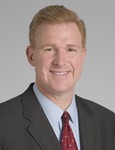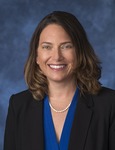View from the C-Suite: A Look Back at the Challenges and Opportunities of 2021 from Five Industry Leaders
// By Rhoda Weiss, Ph.D. //
 As we approach the two-year mark of the pandemic, it’s clear that the crisis has forged strong alliances across the industry. Leaders have come together to share best practices and help one another address challenges common to all.
As we approach the two-year mark of the pandemic, it’s clear that the crisis has forged strong alliances across the industry. Leaders have come together to share best practices and help one another address challenges common to all.
For two years, marketing and communication professionals have faced the excruciating crisis of a pandemic nothing fully prepared us for. We’re changing how and from where we work, balancing dichotomies of layoffs and staff shortages, experiencing colleague and personal burnout, dealing with new and conflicting information, and too much more.
Concerned over public perception of marketing and communications activities, we struggle with how and when to unveil branding and growth market strategies. We’re besieged and even threatened by unhappy, highly vocal opponents of mandates; we try incessantly to counteract unabated disinformation offering comfort and cause to the unvaccinated and unmasked, and have no answer to those telling us to have a nice weekend.
Knowing we achieve much more together, each week since March 2020, I’ve led and coordinated teleconferences for 100+ marketing and communications executives representing a majority of U.S. hospitals. Numbering more than 150 75-minute calls and 2,500 resources, innovations, and activities, each mini-conference — with eight to 10 colleagues and often CEO speakers — shares issues, challenges, solutions, best practices, and more.
While initially primarily pandemic focused, we’ve added pre- and post-COVID topics, discussing what’s new, next, and best, and how the pandemic forever changes the profession, the professional, and organizations we serve.
To gain further insights, I asked colleagues from our group representing regional and national health systems to share challenges, solutions, and activities resulting from pandemic experiences:
- Mark Klein, senior vice president, Corporate Communications & Public Affairs, Dignity Health
- Paul Matsen, chief marketing & communications officer, Cleveland Clinic
- Amalia Stanton, vice president, Marketing, Memorial Hermann Health System
- Kathy Winn, vice president, Strategic Marketing, LifePoint Health
- Roderic (Roddy) Young, chief marketing & communications officer, Boston Children’s Hospital
Here’s how they responded.
What was your biggest challenge in 2021 and how did you overcome that challenge?
 Mark Klein, senior vice president, Corporate Communications & Public Affairs, Dignity Health
Mark Klein, senior vice president, Corporate Communications & Public Affairs, Dignity Health
“Some of the hardest lessons of COVID-19 have also been eye-openers leading us to important, lasting innovation in our communications strategy. We have always known our local leaders are trusted in their communities; but we underestimated how important pre-existing trust equity would prove to be in a public health emergency like a pandemic, where what was known — the science, public health guidance, community impact — was constantly evolving and frequently unclear. We rapidly shifted from a top-down communications model to an emphasis on providing the clearest possible guidance about evolving science and our policies to our local communicators, in order to support their ability to keep on doing what they have long done so well.”
 Paul Matsen, chief marketing & communications officer, Cleveland Clinic
Paul Matsen, chief marketing & communications officer, Cleveland Clinic
“Ongoing shifts to virtual experiences and work driven by the pandemic posed significant challenges. Cleveland Clinic’s Centennial celebration migrated from planned in-person events to virtual with great success. To leverage the virtual environment, we created a video series partnering with CNN’s Courageous Studios and added audible, digital, and podcast versions of “To Act as a Unit,” the history of the Clinic. This was accomplished while working virtually and using full suites of digital tools for meetings and project management.”
 Amalia Stanton, vice president, Marketing, Memorial Hermann Health System
Amalia Stanton, vice president, Marketing, Memorial Hermann Health System
“Continuous change demanded more accurate information and real-time inputs to address market needs. Previous luxuries to think, consider, and process information don’t exist anymore. While always relying on data and consumer opinion for decision-making, we quickly pivoted to monthly pulse surveys, adding and changing questions to adapt to evolving information, trends, and surges. Proactively forecasting and analyzing what the data shows makes us more agile in messaging and marketing, keeps us in sync with where consumers are emotionally and physically, and anticipates marketplace changes.”
 Kathy Winn, vice president, Strategic Marketing, LifePoint Health
Kathy Winn, vice president, Strategic Marketing, LifePoint Health
“While presenting extraordinary challenges, 2021 showcased our marketing team’s passion, dedication, and resilience. We balanced encouraging communities to receive health care and lifesaving screenings with being mindful of caregivers stretched to the limit.”
“We paused campaigns, developed new ones based on consumer research, and quickly deployed them in our communities. For those apprehensive about getting care in a COVID environment, we created walk-through videos to show what to expect when they walk into their local ER. Marketing leaders did all this while taking on whatever roles were needed, such as temperature screeners.”
 Roderic (Roddy) Young, chief marketing & communications officer, Boston Children’s Hospital
Roderic (Roddy) Young, chief marketing & communications officer, Boston Children’s Hospital
“With internal infrastructures already in place, we quickly met skyrocketing demands for virtual visits, producing content on how to access and when to choose virtual versus in-person care. Despite this abrupt shift, patient satisfaction remained high. While demand has tapered, we still see a significant percent of patients virtually and continue work on longer-term models.”
“Separately, George Floyd’s murder and resulting unrest and conversations led us to look inward and externally to consider more deeply initiatives supporting health equity for children, culturally effective care, and research. This included launching Sandra L. Fenwick Institute for Pediatric Health Equity named for our recently retired CEO.”
What particular activities did you implement this year that might not have occurred pre-COVID?
 Mark Klein, senior vice president, Corporate Communications & Public Affairs, Dignity Health
Mark Klein, senior vice president, Corporate Communications & Public Affairs, Dignity Health
“Layers of personal trust, built up over decades in our local communities, represented by 140 hospitals and 1,000+ care sites in 21 states, proved to be an even greater asset than we previously appreciated. Now, we’re actively exploring how best to incorporate these trusted communicators into other strategic communications areas. The enduring lesson is that these community relationships are valuable assets that can at times supplant, and certainly augment, other communications channels such as social media or traditional advertising.”
 Paul Matsen, chief marketing & communications officer, Cleveland Clinic
Paul Matsen, chief marketing & communications officer, Cleveland Clinic
“We embarked on a comprehensive marketing digital transformation that is part of a broader access transformation initiative. The pandemic brought into sharp focus the fact that the website is the organization’s “digital front door” and needed to become more patient-centric. The project will create an enterprise platform that anticipates a patient’s journey and provides completely refreshed and reimagined content and tools. This “team of teams” approach involves active engagement of clinical teams, information technology, and marketing.”
 Amalia Stanton, vice president, Marketing, Memorial Hermann Health System
Amalia Stanton, vice president, Marketing, Memorial Hermann Health System
“Marketing efforts using personalized messaging targeted those deferring care and promoted online scheduling, virtual technologies, and nurse health line to move consumers to most appropriate levels of care. With the pandemic exemplifying health inequities and disparities, we’re increasing strategic and grassroots efforts to create infrastructures that fundamentally change the health dynamics of all Houstonians. Sustainable strategies include expanding trusted, nurturing partnerships with influencers and community organizations; greater emphasis on addressing impacts of social determinants of health and chronic disease management; creating culturally sensitive, resource-rich multi-language microsites; and much more.”
 Kathy Winn, vice president, Strategic Marketing, LifePoint Health
Kathy Winn, vice president, Strategic Marketing, LifePoint Health
“We developed a process to film a scripted commercial locally in each of our communities across the country using an iPhone, creating in just 30 days 80+ individual videos across 85 hospitals in 29 states featuring local physicians speaking to their communities. Videos provided a vehicle to deliver important messages during the height of the pandemic from health care professionals they know and trust aligned with organizational clinical guidance. It was an incredible partnership between local and LifePoint health support center marketing teams.”
 Roderic (Roddy) Young, chief marketing & communications officer, Boston Children’s Hospital
Roderic (Roddy) Young, chief marketing & communications officer, Boston Children’s Hospital
2021 was consumed by the pandemic’s ripple effect on pediatric health care — whether the virus itself, shift to virtual care, consequences of delayed care, or growing behavioral health crisis. With new information flying in every hour, our marketing, communications, and web-digital teams formed an editorial board to establish clearer review processes, create one source of truth, and ensure consistency and clarity in messaging designed for each core audience.
Rhoda Weiss, Ph.D., is president of the Rhoda Weiss Consulting Group Inc. in Los Angeles and a member of the SHCM Editorial Advisory Board. She is founder/chair of the AMA Health Care Executive Summit, bringing together 80 of the nation’s largest health system CMOs; and founder/leader of BetterTogether.Health — prominent Los Angeles health systems united to encourage people to put health first and access care when needed during the coronavirus pandemic.
